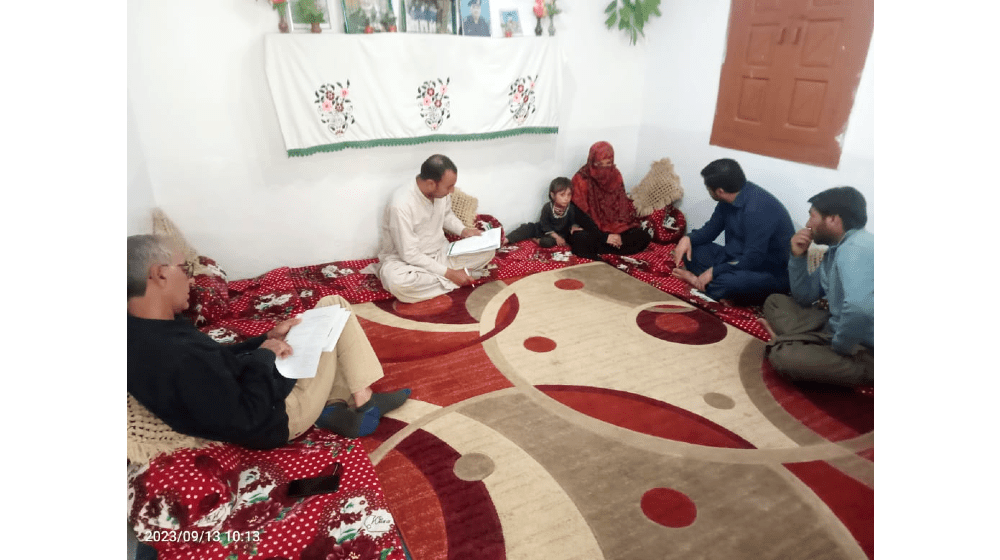Alia, 28, from Sor Laspur, Upper Chitral district, looked fragile as she entered the room and took a seat in an inquisitive posture. Her frail body was indicative of her struggles as she navigates life in a joint family consisting of 14 members, including her unemployed husband, who is one of five brothers. She faces daily challenges to ensure survival for herself and those around her.
"During the second month of my pregnancy, I began experiencing weakness in my arms and legs. By the start of the third month, I had lost all mobility in my legs, making it difficult for me to move around my own home," murmurs Alia. She initially believed these symptoms were typical for someone her age going through their first pregnancy.
One of the family members mentioned Aliya's struggles to a lady health worker (LHW), who visited her and advised her to consult a doctor. The LHW also informed Aliya that, given the economic hardships in her family, she was eligible for the Conditional Cash Voucher (CCV) scheme.
"The news of the CCV was like a gentle breeze carrying whispers of change," Alia says.
The Aga Khan Rural Support Programme (AKRSP) promotes the CCV scheme to benefit vulnerable women in communities. The initiative is implemented under the "Sihaat Mand Khaandaan (SMK) Project: Healthy Families for Pakistan Through Accelerating Sexual Reproductive Health (SRH) and Family Planning (FP) Services (2020-2024)" which aims to enhance the reproductive health and rights of women, adolescents, and youth in areas with poor reproductive health indicators. Global Affairs Canada is funding the project, which aims to enable communities to exercise their reproductive rights without coercion, discrimination, or violence.
Alia's first journey outside of her village was to meet a woman doctor whom she remembers as an angel of hope and courage. The CCV scheme provided her with the promise that her childbirth experience would be successful. The initiative, which ensures that even mothers in remote areas can access essential medical care, brought light into Alia's life.
Alia fondly remembers the doctor who gave her so much attention and care. She recalls, "The doctor explained to me every single cause of my weakness and how I could regain my body strength." As she lifted her headscarf, revealing her swollen belly with only a month left before giving birth, tears of gratitude filled Alia's eyes as she said, "The doctor was so compassionate and caring that I really felt like she was connected to my soul."
Alia's husband accompanied her to the hospital and managed to help her collect the prescribed medicines. It took Alia three days to begin to recover and stand on her own. Alia explained that the doctor had counseled her husband, who now takes good care of her as she moves around to work inside and outside the house.
As Alia awaits the birth of her child, she considers her journey, made possible by the CCV, from a remote village to the entrance of a hospital in the district center as a genuine tale of hope. Despite facing poverty, her decision to have a baby and care for it with courage has become an inspiring story for her family and the entire village. Her story serves as an inspiration and guide for young women to lead empowered lives.


